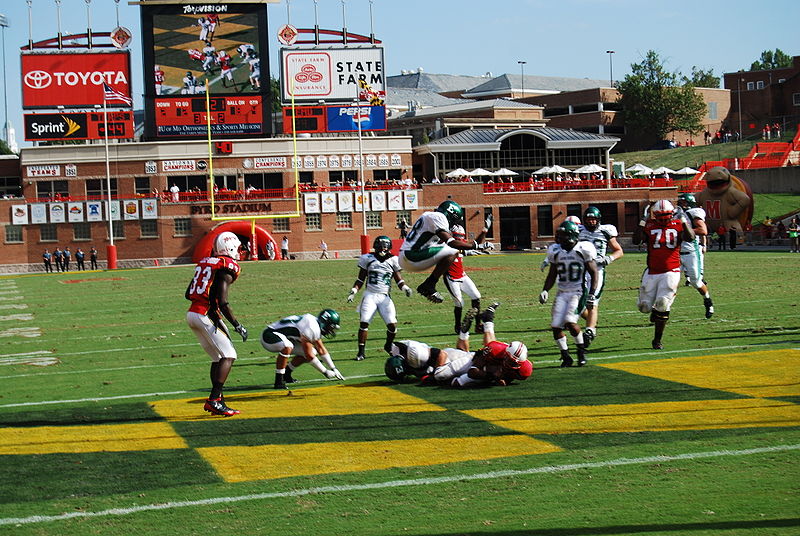UMD must be held accountable for McNair’s death
November 22, 2018
On May 29, 2018, a brutally hot day, Jordan McNair, a sophomore offensive lineman at the University of Maryland (UMD), began showing obvious signs of heat exhaustion during a grueling offseason workout.
After completing seven of ten 110 yard sprints, McNair began to complain of cramps, and according to ESPN, McNair’s teammates noticed he was unstable. However, his complaints were unattended by the athletic trainers on site. Worse, two teammates helped McNair complete all ten spirits, despite his precarious condition, and multiple witnesses recall hearing head football trainer Wes Robinson yell, “Drag his ass across the field!”
Following the sprints, McNair’s state worsened and he was taken off the field where he suffered from a seizure, and the paramedics were notified. Upon arrival at the Washington Adventist Hospital, McNair’s body temperature was cooled from 106 degrees to 102 degrees. In the days following, McNair underwent a liver transplant. Despite doctors’ efforts, the time between initial signs of heatstroke and aid was too long; McNair died on June 13.
In weeks following McNair’s death, teammates, friends, family, and community members were shocked, for this tragedy was easily preventable. According to the Washington Post, using cold water immersion, something UMD’s athletic trainers failed to do, upon first signs of heatstroke leads to a 100 percent survival rate. A healthy young man with a promising future suffered an avoidable death, and someone has to be held accountable.
Multiple investigations emerged in the aftermath of McNair’s death. An ESPN investigation uncovered a toxic culture of bullying, fear, harassment, intimidation, and hazing tactics that thrived under head coach DJ Durkin and Rick Court, the strength and conditioning coach who ran the fatal May 29th practice.
On August 10th, after countless allegations against Court, athletic trainer Steve Nordwall and head football trainer Wes Robinson, UMD placed the men on administrative leave, and on August 14th Court was fired from the program. However, after a several month long investigation, on October 30th, the Maryland Board of Regents decided to reinstate Durkin as coach.
People were outraged. Friends and teammates of McNair, politicians, the media, and concerned citizens all spoke out against Durkin’s reinstatement. Players who had previously stayed silent on the matter voiced their disdain. Teammate Ellis McKennie tweeted, “…a group of people do not have the courage to hold someone accountable for (McNair’s) death”.
While the public’s protest was heard and UMD’s President Wallace Loh fired Durkin by the end of the following day, the initial decision to reinstate Durkin, who, along with Court, humiliated and pushed countless athletes to their breaking point, speaks volumes.
Within recent years, a toxic culture has been tolerated because of the money brought in by football programs. Schools profit off coaches using inhumane methods to push their athletes to be the “best.” Schools profit off the standard that athletes admitting something is beyond their capabilities is “soft” or “weak.”
From horrible cases of hazing to barbaric behavior of coaches and trainers, it is evident that schools would rather push these high performing athletes to their breaking point rather than take lose a game.
We must stop pushing the narrative that “quitting” is a sign of weakness. We must hold coaches, trainers, and schools accountable for irrational and disturbing behavior reported by athletes. We must honor Jordan McNair, and assure this tragic preventable death never occurs again.
Interested in responding? Submit your letters using this google form! If you have any questions, please do not hesitate to contact [email protected] or reach out to Rebecca Huang, Shevani Tewari, or Ashley Ye directly!



